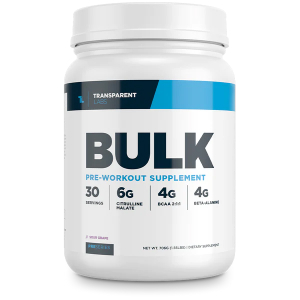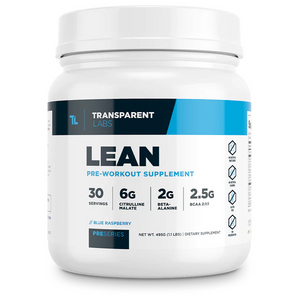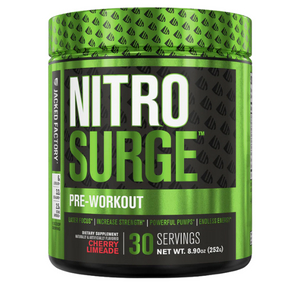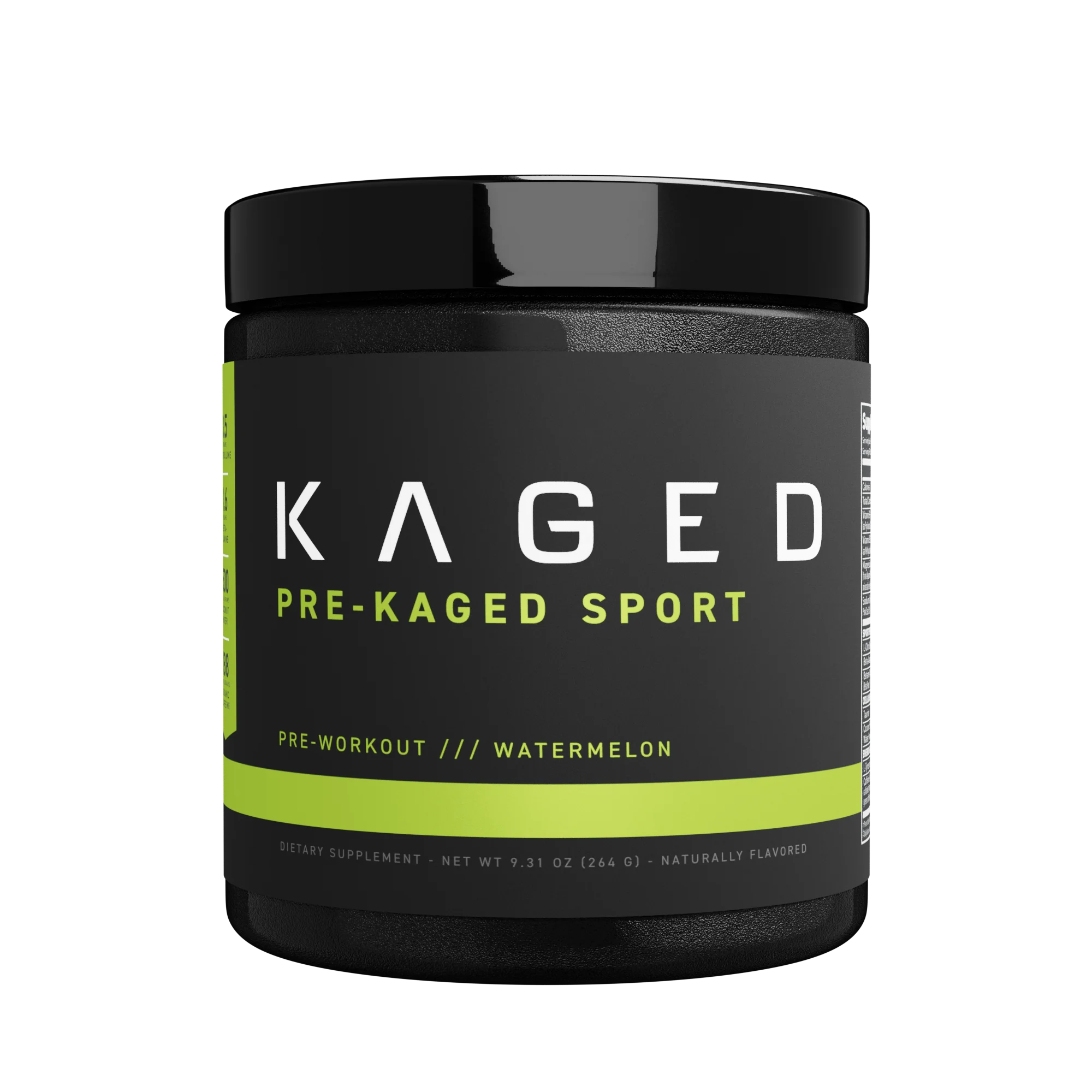 Expert's opinion
Expert's opinion
The article is a subjective view on this topic written by writers specializing in medical writing.
It may reflect on a personal journey surrounding struggles with an illness or medical condition, involve product comparisons, diet considerations, or other health-related opinions.
Although the view is entirely that of the writer, it is based on academic experiences and scientific research they have conducted; it is fact-checked by a team of degreed medical experts, and validated by sources attached to the article.
The numbers in parenthesis (1,2,3) will take you to clickable links to related scientific papers.
Best Pre-Workout Without Creatine 2024: Top 5 Supplements To Boost Muscle Gain
All articles are produced independently. When you click our links for purchasing products, we earn an affiliate commission. Learn more about how we earn revenue by reading our advertise disclaimer.

Transparent Labs BULK Pre-Workout
- Best pre-workout supplement for building muscle mass
- Gluten-free and non-GMO
- Contains no artificial sweeteners or additives

Transparent Labs LEAN Pre-Workout
- Keto-friendly pre-workout supplement
- Creatine free product
- Promotes weight loss

Jacked Factory Nitrosurge Pre-Workout Powder
- Available in different flavors
- No artificial sweeteners or colors
- 30 servings per tin
Pre-workout supplements are pretty popular across the world. These normally contain key ingredients, including creatine. Unfortunately, some people don’t like creatine because it has side effects.
The good news is that you can enjoy pre-workout creatine-free supplements. These contain natural and safe ingredients that benefit your body. In this article, get to know the 5 best pre-workouts without creatine supplements.
5 Best Pre-Workouts Without Creatine On The Market In (April. 2024)
- Transparent Labs BULK Pre-Workout – Editor’s Choice
- Transparent Labs LEAN Pre-Workout – Best For Fat Loss
- Jacked Factory Nitrosurge Pre-Workout Powder – Best For Muscle-Building
- Powher Pre-Workout For Women – Best For Women
- Kaged Muscle Pre-Kaged Sport – Best Energy Booster
Best Creatine-Free Pre-Workout To Build Muscle In 2024
Transparent Labs BULK Pre-Workout
Creatine-free Transparent Labs BULK Pre-workout contains natural ingredients that benefit your body. The pre-workout supplement works to boost muscle growth thanks to its muscle-focused formulation.
- Best pre-workout supplement for building muscle mass
- Gluten-free and non-GMO
- Vegan-friendly pre-workout without creatine
- Sugar-free pre-workout supplement
- Third-party testing to ascertain quality
- Can have a strong flavor
- Can lead to diarrhea
When taking this creatine-free pre-workout supplement, it’s important to observe the dosage. Stick to taking half or one spoon of the product mixed in 10 ounces of water daily. The best time to take it is before you start training; that is, 30 minutes prior.
This is a pre-workout supplement made using citrulline Malate, beta-alanine, BCAAs (branched-chain amino acids), betaine, boron, vitamin D, zinc, caffeine, taurine, theanine, and tyrosine. Other ingredients are choline bitartrate, Mucuna pruriens, L-norvaline, and hordenine.
Foods like legumes, watermelon, and organ meats are rich in citrulline, a non-essential amino acid. This is an essential ingredient for better endurance[1] and athletic performance. In this product, you get 6g of citrulline malate.
Next, beta-alanine is another endurance-boosting[2] ingredient in this pre-workout supplement. This enables you to last longer during training sessions, with 1.5g in the product.
Also, BCAAs (valine, leucine, and isoleucine) boost fat loss[3] while promoting focus and muscle retention. The pre-workout supplement contains 4g of BCAAs.
The best pre-workout without creatine also contains vitamin D and zinc. Combining the two is good for boosting testosterone levels[4] in men. An increase in zinc and Vitamin D intake also delays muscle fatigue.
Transparent Labs LEAN Pre-workout
The creatine-free Transparent Labs LEAN Pre-workout is an energy-boosting product made using natural ingredients. It’s ideal for promoting muscle growth and fat loss in athletes and folks who are into weight-lifting.
- Keto-friendly pre-workout supplement
- Gluten-free and non-GMO product
- Contains fermented vegan BCAAs and is vegan-friendly
- Boosts exercise performance
- Can cause lightheadedness
- Can cause nausea
Transparent Labs is dedicated to making quality pre-workout products using natural ingredients. When taking this pre-workout without creatine to lose weight, ensure you adhere to the proper dosage. Start with half a scoop to test your body’s reaction, then move on to one scoop per day.
Different natural ingredients in the pre-workout supplement include citrulline malate, betaine, BCAAS, beta-alanine, tyrosine, caffeine, L-theanine, choline bitartrate, Mucuna pruriens, guggulsterones, and black pepper extract.
L-theanine is what athletes need to have more focus on during workout sessions. A 2021 study[5] shows that L-theanine can improve focus. This is essential when it comes to executive functions and working memory.
More power during muscle pumps is possible, thanks to betaine.[6] This is a compound that comes from beets and other natural plants. The purpose of betaine is to maximize power output when doing squats and other muscle pumps.
Beta-alanine is another key ingredient in this creatine-free pre-workout supplement. It’s responsible for boosting cellular carnosine levels[7] that decrease during intense training sessions. You can delay muscle fatigue and increase lean muscle mass when you have a proper stim-free dose.
Citrulline malate is the best part of any pre-workout supplement you can take. This ingredient has better absorption and evokes high amounts of plasma arginine. It’s crucial for improving muscle strength and raising nitric oxide levels[8] in the body.
Jacked Factory Nitrosurge Pre-workout Powder
Jacked Factory Nitrosurge Pre-workout Powder is an ideal pre-workout creatine-free powder. Men and women who love to pump iron and push their fitness abilities benefit from the natural ingredients.
- Creatine-free pre-workout supplement
- Contains clean and effective natural ingredients
- Supports muscle mass growth and muscle building
- Boosts nitric oxide production
- Can cause diarrhea
- Can lead to vomiting
Pre-workout supplements are beneficial because you can have more endurance and less fatigue while working out. Another great example of a pre-workout supplement is Jacked Factory Nitrosurge Pre-workout powder.
As you strive to boost muscle gain, you must use supplements with beneficial ingredients. Here, you can enjoy L-citrulline, Beta-alanine, Beta-anhydrous, theanine, theobromine, astragalin, and natural sweeteners.
L-citrulline is what you need during extreme workout sessions in the gym. This compound helps to improve blood flow to muscles and overall circulation in the body. This creatine-free pre-workout supplement contains L-citrulline that’s converted to arginine,[9] an amino acid. Arginine becomes nitric oxide,[10] essential for good blood flow.
Another key ingredient is beta-alanine, beneficial when you want more muscle gains. It increases TTE (time to exhaustion), meaning you can have longer workouts[11] each day. You also have better muscle endurance[12] and less fatigue during training sessions.
The body also benefits from taking the best pre-workout supplement because it has L-theanine. This is an essential compound that boosts focus and attention. In one study,[13] young adults took 97 mg of L-theanine supplements with coffee and maintained better attention and focus during intense tasks.
Powher Pre-workout For Women
Powher Pre-workout for Women is a natural performance-enhancing supplement formulated for women. This is what you need to keep going during workout sessions, especially while increasing intensity.
- Made using natural and safe ingredients
- Good for muscle-building
- Creatine-free pre-workout supplement
- Non-GMO and gluten-free
- Only available on the official website
- No evidence of third-party quality testing
Taking a pre-workout supplement with only a few stimulants is good, and this creatine-free product fits the bill. You enjoy better muscle gain thanks to natural ingredients and a lack of harmful muscle-pumping ingredients.
The best pre-workout supplement has safe-to-consume ingredients with numerous benefits. These ingredients include folic acid, tyrosine, beta-alanine, natural caffeine, leucine, EnXtra, Oxyjun, RedNite, vitamin B12, CocoMineral, and vitamin B6.
Starting, vitamin Bs is an essential ingredient in the creatine-free pre-workout supplement. Vitamin B6 comes in handy when working to manage premenstrual symptoms.[14] It’s good for relieving moodiness and anxiety in women. Also, vitamin B12[15] is a crucial ingredient in mass muscle preservation.
Tyrosine, another ingredient found in these pre-workout supplements, is worth noting. This is a non-essential amino acid precursor for dopamine and epinephrine. It can affect cognitive function[16] and metabolism.
The pre-workout without creatine also has leucine, an essential BCAA[17] (branch-chain amino acid). This ingredient benefits the heart by improving cardiovascular function. Better blood flow and blood supply boost endurance as you work towards your fitness goals.
It contains natural caffeine, which also boosts energy levels in the body during training sessions. Caffeine increases mental alertness[18] and focuses during workouts. A small amount of natural caffeine keeps you attentive, but not too much to cause side effects like nausea.
Kaged Muscle Pre-Kaged Sport

15% Off Coupon: HEALTHCANAL
Kaged Muscle Pre-Kaged Sport creatine-free pre-workout supplement is a special blend for athletes. This product is safe for men and women to consume before starting their training sessions.
- Contains plant-based citrulline
- Cruelty-free pre-workout supplement
- Safe for human consumption
- Contains organic caffeine
- Can cause digestive issues
- Can lead to nausea
The best pre-workout supplement contains essential ingredients that benefit athletes. This product includes betaine, organic caffeine, beta-alanine, L-citrulline, magnesium, Himalayan sea salt, taurine, and tyrosine.
Magnesium is an essential ingredient in a pre-workout supplement. The mineral plays a crucial role in muscle contraction[19] and relaxation during training. This natural calcium blocker helps your muscles relax and return to a dormant state, ready to contract again
The product also contains betaine, which delivers more muscle power per pump. It maximizes power output when doing squats, lifts, and similar workouts.
There’s also L-citrulline that improves blood flow to muscles and blood supply. L-citrulline is converted to arginine,[9] an amino acid. Arginine becomes nitric oxide, a powerful blood vessel dilator essential for good blood flow.
The body also benefits from beta-alanine. This improves TTE (time to exhaustion), so you can have longer workouts[11] each day. It’s also good for muscle endurance[12] and reducing fatigue.
What Is Creatine?
Creatine[20] is a natural substance available in your muscles’ cells. When you engage in weight lifting or intense workouts, creatine is responsible for muscle energy production.
While there is creatine in the muscles of your body, you can always boost its levels by taking creatine supplements.[21] This helps improve exercise performance, enhance muscle strength, and promote muscle gain.
Why Do People Use Creatine?
Athletes, bodybuilders, and weight lifters use creatine supplements every day. Creatine benefits the body by enabling a burst of speed energy during high-intensity short bouts[22] of weight lifting, for example.
Side Effects Of Creatine
Weight Gain
The body can store water, and weight gain occurs when this water moves to the muscles. These muscles grow, which leads to water weight gain.[23] In this case, body fat isn’t responsible for the higher scale reading.
Folks who don’t want muscle gain are better off taking the creatine-free pre-workout supplement. Muscle growth can occur, but not extreme.
Dehydration
You might feel dehydrated as water moves from the body to the muscle. If you aren’t fond of drinking lots of water, using a creatine supplement pushes you to start carrying a bottle with you.
There’s still a need for more research as there’s no scientific evidence that creatine leads to dehydration.
Diarrhea
Another side effect of creatine is diarrhea. This is especially common if you exceed the recommended amount of creatine supplement to take each day.
Other side effects of creatine include muscle cramps and digestive issues.
Who Should Take Creatine-Free Pre-Workouts?
Though many people take supplements with creatine, some would rather use a creatine-free pre-workout product. As good as creatine can be, it has several side effects. These side effects are the reason why some want pre-workouts without creatine.
At the top of the list is weight gain. The body can store water, and weight gain occurs when this water moves into the muscles. These muscles enlarge, which leads to water weight gain.[23] In this case, body fat isn’t responsible for the increase in weight.
Folks who don’t want muscle gain are better off taking the creatine-free pre-workout supplement. Muscle growth can occur, but not extreme.
In addition, creatine can lead to dehydration.
Ingredients In Pre-Workout No Creatine
L-citrulline
L-citrulline comes in handy during extreme workout sessions. The compound improves blood flow to muscles and blood supply. L-citrulline is converted to arginine,[9] an amino acid; arginine is converted into nitric oxide, essential for good blood flow.
Betaine
Muscle pumps can deliver more power because of betaine,[6] extracted from beets and other natural plants. Betaine is maximizing power output when doing squats and other muscle pumps.
Beta-Alanine
Beta-alanine is essential for muscle gain. It increases TTE (Time to Exhaustion), making it possible to enjoy longer workouts[11] each day. This ingredient is also good for muscle endurance[12] and less fatigue during training sessions.
BCAAs (Branch-Chain Amino Acids)
BCAAs like valine, leucine, and isoleucine boost fat loss[3] while promoting focus and muscle retention. They also help reduce muscle fatigue and soreness after intense training sessions. The amino acids[24] are a preventive measure when you want to maintain muscle protein synthesis.
L-theanine
L-theanine benefits weight-lighters, bodybuilders, and athletes by improving mental alertness. A 2021 study[5] shows that L-theanine improves focus and working memory, especially when performing executive functions.
Natural Caffeine
Natural caffeine increases energy levels and boosts mental alertness[18] and focus during workouts. Creatine-free pre-workout supplements contain small amounts of natural caffeine. This delivers the benefits without the side effects of too much caffeine intake.
How To Choose The Best Pre-Workout Without Creatine
Always note the ingredients list of the creatine-free pre-workout supplement before placing an order. The best pre-workout without creatine contains safe and natural ingredients.
Apart from the ingredients list, the supplement should have no artificial flavors, sweeteners, or preservatives. The best ones are keto, vegan-friendly, non-GMO, and gluten-free pre-workout supplements.
Final Thought
By taking creatine-free pre-workout supplements, you can enjoy specific benefits without the side effects of creatine. These supplements are good for muscle gain without worrying about weight gain. In fact, some pre-workout supplements promote fat burning and fat loss in the body.
The main ingredients of pre-workout without creatine supplements are L-citrulline, L-theanine, natural caffeine, BCAAs, beta-alanine, and betaine. Consult your dietitian before buying and using the supplements.
Frequently Asked Questions
Taking the pre-workout supplement 30 minutes before you start training is best. This gives the body ample time to absorb the ingredients. Follow the directions on the container detailing the best way to take the creatine-free supplement.
The pre-workout pill without creatine needs to contain natural and safe ingredients. Check if the product has L-citrulline, L-theanine, natural caffeine, BCAAs, beta-alanine, and betaine. Also, check if there’s an available report from a trusted third-party testing facility.
Yes, pre-workout without creatine is good if you want to lose weight. Creatine encourages water weight gain[25] as the muscles take on more water, moved out of the rest of the body. When taking creatine pre-workouts, the weight gain is from water, not body fat.
Creatine-free pre-workout is similar to a regular pre-workout. However, it lacks creatine which is an ingredient present in regular pre-workouts.
Creatine occurs naturally in certain foods. If you want to avoid it completely, steer clear of red meat and fish.[26] There’s about 2g of creatine in 1 pound of raw beef.[27] Also, avoid eggs, as these are good sources of creatine.
Creatine can increase muscle size and also boost muscle growth. In one study,[28] older adults increased muscle mass and leg strength after taking creatine supplements.
+ 28 sources
Health Canal avoids using tertiary references. We have strict sourcing guidelines and rely on peer-reviewed studies, academic researches from medical associations and institutions. To ensure the accuracy of articles in Health Canal, you can read more about the editorial process here
- Suzuki, T., Murakami, M., Kobayashi, Y. and Kamimura, A. (2016). Oral L-citrulline supplementation enhances cycling time trial performance in healthy trained men: Double-blind randomized placebo-controlled 2-way crossover study. Journal of the International Society of Sports Nutrition, [online] 13(1). doi:https://doi.org/10.1186/s12970-016-0117-z.
- Trexler, E.T., Smith‐Ryan, A.E., Stout, J.R., Hoffman, J.R., Wilborn, C., Sale, C., Kreider, R.B., Ralf Jäger, Earnest, C.P., Laurent Bannock, Campbell, B., Kalman, D., Ziegenfuss, T.N. and José António (2015). International society of sports nutrition position stand: Beta-Alanine. Journal of the International Society of Sports Nutrition, [online] 12(1). doi:https://doi.org/10.1186/s12970-015-0090-y.
- Zahra Shakibay Novin, Saeed Ghavamzadeh and Mehdizadeh, A. (2018). The Weight Loss Effects of Branched Chain Amino Acids and Vitamin B6: A Randomized Controlled Trial on Obese and Overweight Women. International Journal for Vitamin and Nutrition Research, [online] 88(1-2), pp.80–89. doi:https://doi.org/10.1024/0300-9831/a000511.
- Pilz, S., Frisch, S., Heinrich Koertke, Joachim Kühn, Dreier, J., Obermayer-Pietsch, B., Wehr, E. and Armin Zittermann (2010). Effect of Vitamin D Supplementation on Testosterone Levels in Men. Hormone and Metabolic Research, [online] 43(03), pp.223–225. doi:https://doi.org/10.1055/s-0030-1269854.
- Baba, Y., Inagaki, S., Nakagawa, S., Kobayashi, T., Kobayashi, M. and Takanobu Takihara (2021). Effects of l-Theanine on Cognitive Function in Middle-Aged and Older Subjects: A Randomized Placebo-Controlled Study. Journal of Medicinal Food, [online] 24(4), pp.333–341. doi:https://doi.org/10.1089/jmf.2020.4803.
- Hoffman, J.R., Ratamess, N.A., Kang, J., Rashti, S.L. and Faigenbaum, A.D. (2009). Effect of betaine supplementation on power performance and fatigue. Journal of the International Society of Sports Nutrition, [online] 6(1). doi:https://doi.org/10.1186/1550-2783-6-7.
- Culbertson, J., Kreider, R.B., Greenwood, M. and Cooke, M. (2010). Effects of Beta-Alanine on Muscle Carnosine and Exercise Performance: A Review of the Current Literature. Nutrients, [online] 2(1), pp.75–98. doi:https://doi.org/10.3390/nu2010075.
- Gough, L.A., Sparks, A.K., McNaughton, L.R., Higgins, M.F., Newbury, J.W., Trexler, E.T., Faghy, M.A. and Bridge, C.A. (2021). A critical review of citrulline malate supplementation and exercise performance. European Journal of Applied Physiology, [online] 121(12), pp.3283–3295. doi:https://doi.org/10.1007/s00421-021-04774-6.
- Quillon, A., Bérengère Fromy and Romain Debret (2015). Endothelium microenvironment sensing leading to nitric oxide mediated vasodilation: A review of nervous and biomechanical signals. Nitric Oxide, [online] 45, pp.20–26. doi:https://doi.org/10.1016/j.niox.2015.01.006.
- Moncada, S. and Higgs, A. (1993). The L-Arginine-Nitric Oxide Pathway. The New England Journal of Medicine, [online] 329(27), pp.2002–2012. doi:https://doi.org/10.1056/nejm199312303292706.
- Hobson, R.M., Saunders, B., Ball, G., Harris, R.C. and Sale, C. (2012). Effects of β-alanine supplementation on exercise performance: a meta-analysis. Amino Acids, [online] 43(1), pp.25–37. doi:https://doi.org/10.1007/s00726-011-1200-z.
- Stout, J.R., B. Sue Graves, Smith, A.E., Hartman, M.J., Cramer, J.T., Beck, T.W. and Harris, R.C. (2008). The effect of beta-alanine supplementation on neuromuscular fatigue in elderly (55–92 Years): a double-blind randomized study. Journal of the International Society of Sports Nutrition, [online] 5(1). doi:https://doi.org/10.1186/1550-2783-5-21.
- Giesbrecht, T., Rycroft, J.A., Rowson, M. and Eveline (2010). The combination of L-theanine and caffeine improves cognitive performance and increases subjective alertness. Nutritional Neuroscience, [online] 13(6), pp.283–290. doi:https://doi.org/10.1179/147683010×12611460764840.
- Wyatt, K., Dimmock, P., Jones, P.W. and P. M. S. O’brien (1999). Efficacy of vitamin B-6 in the treatment of premenstrual syndrome: systematic review. The BMJ, [online] 318(7195), pp.1375–1381. doi:https://doi.org/10.1136/bmj.318.7195.1375.
- O’Leary, F. and Samman, S. (2010). Vitamin B12 in Health and Disease. Nutrients, [online] 2(3), pp.299–316. doi:https://doi.org/10.3390/nu2030299.
- Bloemendaal, M., Froböse, M.I., Wegman, J., Zandbelt, B.B., van, Cools, R. and Aarts, E. (2018). Neuro-Cognitive Effects of Acute Tyrosine Administration on Reactive and Proactive Response Inhibition in Healthy Older Adults. ENeuro, [online] 5(2), pp.ENEURO.0035-17.2018. doi:https://doi.org/10.1523/eneuro.0035-17.2018.
- Grajeda‐Iglesias, C. and Aviram, M. (2018). Specific Amino Acids Affect Cardiovascular Diseases and Atherogenesis via Protection against Macrophage Foam Cell Formation: Review Article. Rambam Maimonides Medical Journal, [online] 9(3), pp.e0022–e0022. doi:https://doi.org/10.5041/rmmj.10337.
- Pasman, W.J., Boessen, R., Donner, Y., Nard and Boorsma, A. (2017). Effect of Caffeine on Attention and Alertness Measured in a Home-Setting, Using Web-Based Cognition Tests. JMIR Research Protocols, [online] 6(9), pp.e169–e169. doi:https://doi.org/10.2196/resprot.6727.
- Moretti, A. (2021). What is the role of magnesium for skeletal muscle cramps? A Cochrane Review summary with commentary. Journal of musculoskeletal & neuronal interactions, [online] 21(1), pp.1–3. Available at: https://www.ncbi.nlm.nih.gov/pmc/articles/PMC8020016/.
- Kreider, R.B. and Stout, J.R. (2021). Creatine in Health and Disease. Nutrients, [online] 13(2), pp.447–447. doi:https://doi.org/10.3390/nu13020447.
- Kreider, R.B., Kalman, D., José António, Ziegenfuss, T.N., Wildman, R., Collins, R., Candow, D.G., Kleiner, S.M., Almada, A.L. and Lopez, H.L. (2017). International Society of Sports Nutrition position stand: safety and efficacy of creatine supplementation in exercise, sport, and medicine. Journal of the International Society of Sports Nutrition, [online] 14(1). doi:https://doi.org/10.1186/s12970-017-0173-z.
- Wax, B., Kerksick, C.M., Jagim, A.R., Mayo, J.J., Lyons, B. and Kreider, R.B. (2021). Creatine for Exercise and Sports Performance, with Recovery Considerations for Healthy Populations. Nutrients, [online] 13(6), pp.1915–1915. doi:https://doi.org/10.3390/nu13061915.
- Buford, T.W., Kreider, R.B., Stout, J.R., Greenwood, M., Campbell, B., Spano, M., Ziegenfuss, T.N., Lopez, H.L., Landis, J. and José António (2007). International Society of Sports Nutrition position stand: creatine supplementation and exercise. Journal of the International Society of Sports Nutrition, [online] 4(1). doi:https://doi.org/10.1186/1550-2783-4-6.
- Tipton, K.D., D. Lee Hamilton and Gallagher, I.J. (2018). Assessing the Role of Muscle Protein Breakdown in Response to Nutrition and Exercise in Humans. Sports Medicine, [online] 48(S1), pp.53–64. doi:https://doi.org/10.1007/s40279-017-0845-5.
- Powers, M.E., Arnold, B.L., Weltman, A.L., Perrin, D.H., Mistry, D., Kahler, D.M., Kraemer, W. and Volek, J. (2003). Creatine Supplementation Increases Total Body Water Without Altering Fluid Distribution. Journal of athletic training, [online] 38(1), pp.44–50. Available at: https://www.ncbi.nlm.nih.gov/pmc/articles/PMC155510/.
- Schrama, D., Cerqueira, M., Raposo, C., Rosa, A.M., Wulff, T., Gonçalves, A., Camacho, C., Colen, R., Augusto, F. and Rodrigues, P.M. (2018). Dietary Creatine Supplementation in Gilthead Seabream (Sparus aurata): Comparative Proteomics Analysis on Fish Allergens, Muscle Quality, and Liver. Frontiers in Physiology, [online] 9. doi:https://doi.org/10.3389/fphys.2018.01844.
- Schrama, D., Cerqueira, M., Raposo, C., Rosa, A.M., Wulff, T., Gonçalves, A., Camacho, C., Colen, R., Augusto, F. and Rodrigues, P.M. (2018). Dietary Creatine Supplementation in Gilthead Seabream (Sparus aurata): Comparative Proteomics Analysis on Fish Allergens, Muscle Quality, and Liver. Frontiers in Physiology, [online] 9. doi:https://doi.org/10.3389/fphys.2018.01844.
- Brose, A., Parise, G. and Tarnopolsky, M.A. (2003). Creatine Supplementation Enhances Isometric Strength and Body Composition Improvements Following Strength Exercise Training in Older Adults. The Journals of Gerontology: Series A, [online] 58(1), pp.B11–B19. doi:https://doi.org/10.1093/gerona/58.1.b11.




